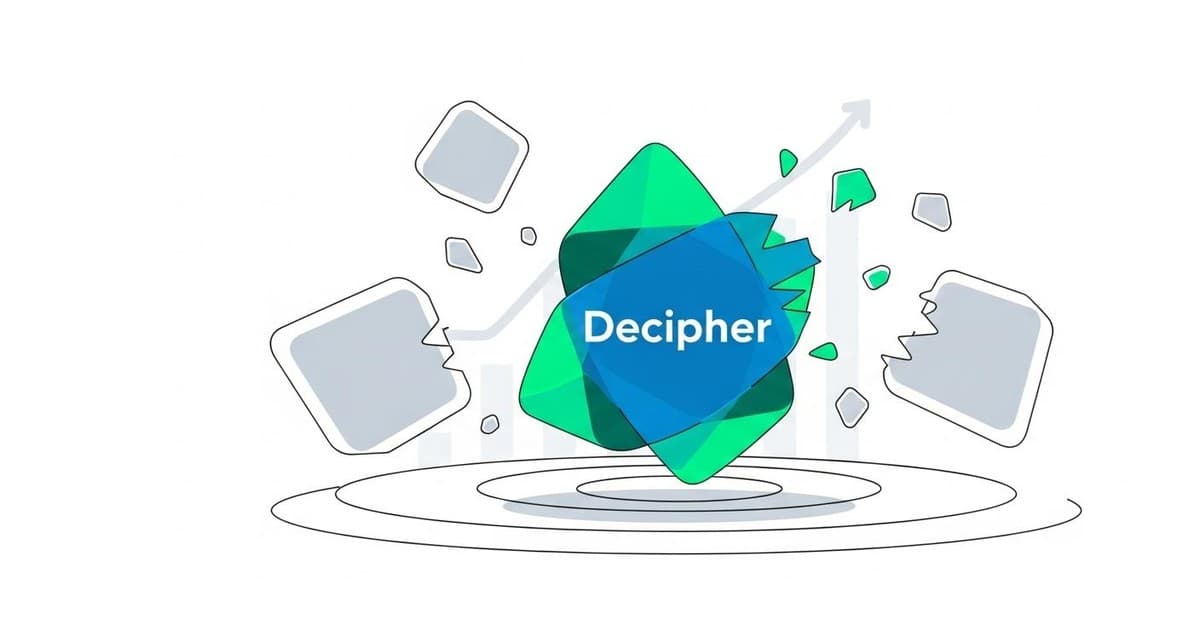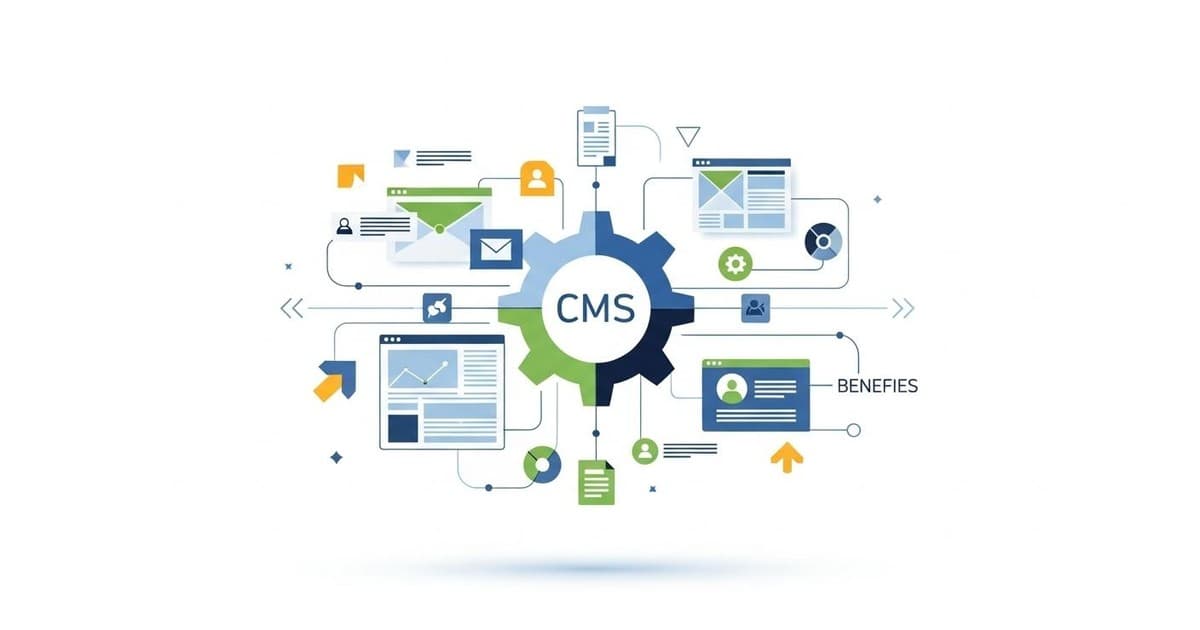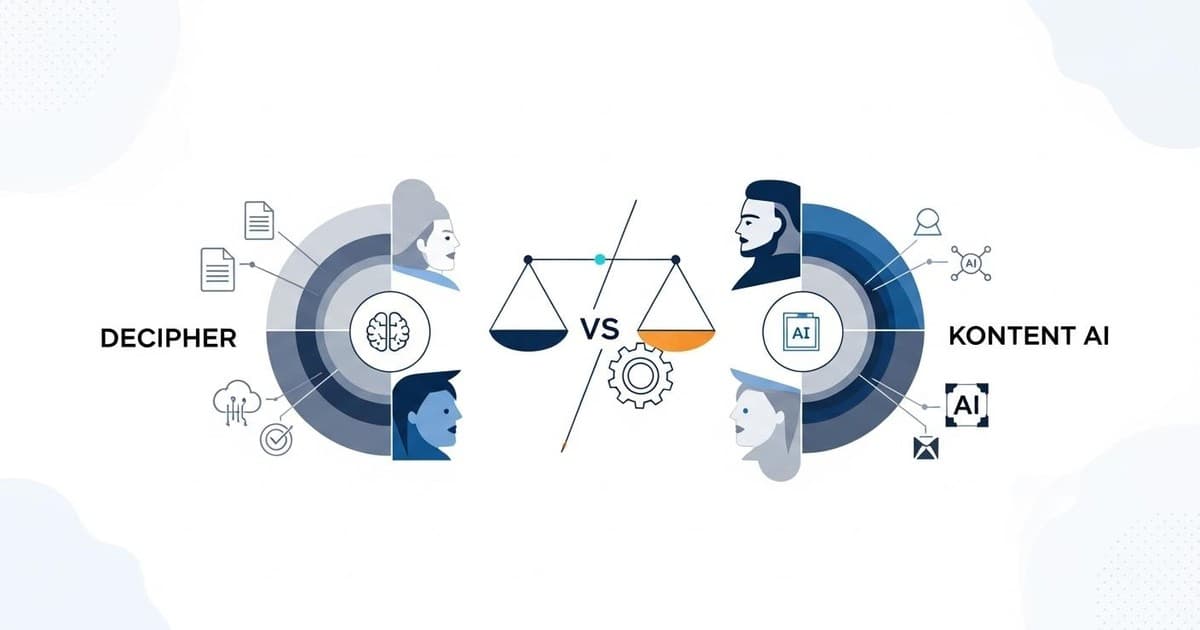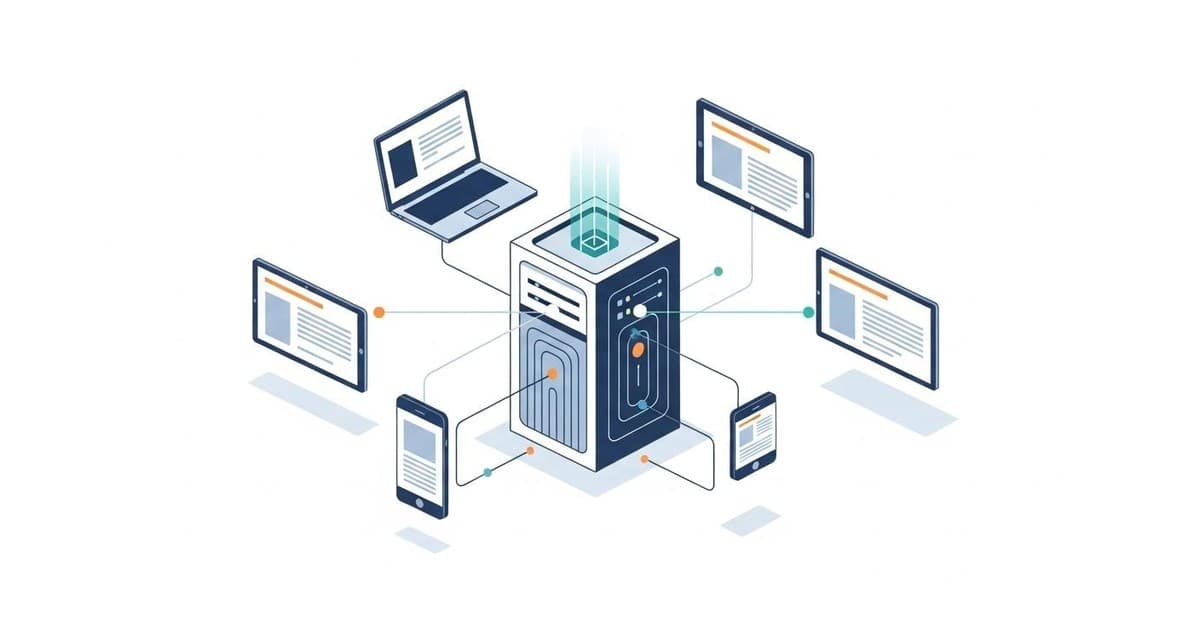
Decipher's Potential to Upend the CMS Industry
The $4.2 billion content management industry is on the brink of its biggest disruption since the shift from static HTML to dynamic publishing. Decipher CMS doesn't just offer another CMS option—it fundamentally reimagines what content management can be when artificial intelligence becomes the foundation, not an afterthought.
Breaking the Industry's False Choice
For 25 years, the CMS industry has trapped organizations in an impossible decision: Choose user-friendly platforms like WordPress that become security nightmares and scaling disasters, or embrace technically superior headless solutions that alienate content creators and fragment workflows into expensive, disconnected toolchains.
This forced compromise has cost enterprises billions in development overhead, security breaches, productivity losses, and disruptive platform migrations. Meanwhile, marketing teams struggle with tools built for developers, while development teams wrestle with platforms that can't handle modern content demands.
DecipherCMS shatters this false choice entirely. By building AI into every layer of the platform—from content creation to optimization, from workflow management to performance analytics—we've created the first CMS that actually gets smarter as you use it, eliminating the traditional trade-offs between power and simplicity.
What Makes a CMS Capable of Industry Disruption?

Before examining how Decipher positions itself to challenge established players, it's essential to understand what characteristics enable a platform to fundamentally reshape an entire industry.
1. Architectural Innovation That Solves Core Problems
True disruption requires addressing fundamental limitations rather than incremental improvements. The most successful platform shifts—from desktop software to cloud-based solutions—solved problems that existing architectures couldn't address through updates alone.
2. Unified Experience Across User Types
Industry-changing platforms eliminate the traditional trade-offs between different user groups. Instead of forcing organizations to choose between developer-friendly or marketer-friendly solutions, disruptive technologies serve both constituencies without compromise.
3. Economic Model Advantages
Platforms that reshape industries often introduce pricing or deployment models that provide clear economic advantages over existing solutions, whether through reduced total cost of ownership, elimination of vendor lock-in, or more predictable scaling costs.
4. AI-Native Integration
Modern disruptive platforms don't bolt AI features onto existing architectures—they're built from the ground up to leverage artificial intelligence for core operations, providing capabilities that legacy systems cannot match through retrofitting.
5. Enterprise-Grade Scalability Without Complexity
The most successful platform disruptions provide enterprise capabilities at startup-friendly complexity levels, eliminating the traditional correlation between power and operational overhead.
The Cracks in the Foundation: Why the CMS Industry is Ripe for Disruption
 The current CMS landscape suffers from fundamental architectural limitations that create opportunities for innovative solutions. Traditional monolithic systems like WordPress dominate market share but struggle with modern requirements, while headless solutions solve technical problems at the expense of user experience.
The current CMS landscape suffers from fundamental architectural limitations that create opportunities for innovative solutions. Traditional monolithic systems like WordPress dominate market share but struggle with modern requirements, while headless solutions solve technical problems at the expense of user experience.
The Monolith's Burden
WordPress powers over 40% of websites, but this dominance masks serious structural problems. The platform's plugin-dependent architecture creates security vulnerabilities, with over 90% of WordPress hacks exploiting plugin weaknesses. Performance bottlenecks emerge as sites scale, requiring expensive optimization and caching solutions. Most critically, the platform's PHP-based architecture and database-heavy approach feel increasingly outdated to developers accustomed to modern JavaScript frameworks and API-first architectures.
The Headless Complexity Trap
Headless CMS platforms like Contentful promised to solve these technical limitations by separating content management from presentation. However, this approach created new problems: content creators lost visual editing capabilities, development teams faced increased complexity managing multiple services, and organizations discovered that "composable" architectures often require specialized expertise to implement effectively. The total cost of ownership frequently exceeds traditional solutions when factoring in development time and ongoing maintenance.
The User Experience Divide
Both approaches force organizations into compromises. Marketers struggle with headless systems that require technical knowledge for basic content updates, while developers feel constrained by monolithic platforms that limit architectural flexibility. This fundamental tension has persisted for years without a satisfactory resolution, creating space for a platform that serves both user groups effectively.
Enter Decipher: A New Paradigm for Content Management

Decipher CMS represents a fundamentally different approach to content management, built from the ground up as an AI-native platform that eliminates traditional trade-offs between usability and flexibility. Rather than choosing between monolithic simplicity or headless complexity, Decipher provides enterprise-grade capabilities through an integrated platform that grows with your organization.
AI-Native Architecture
Unlike platforms that add AI features as afterthoughts, Decipher integrates artificial intelligence throughout its core architecture. The system provides real-time content recommendations based on performance data and brand guidelines, automated quality scoring against SEO best practices, and intelligent content optimization across multiple channels. This AI-first approach enables capabilities that legacy systems cannot match through bolt-on solutions.
Enterprise Deployment with Startup Simplicity
Decipher operates on your own Google Cloud infrastructure, providing complete platform ownership and customization freedom while eliminating per-seat pricing constraints. Organizations get unlimited user access for a fixed monthly fee, making it economically viable for growing teams without the vendor lock-in typical of traditional SaaS solutions. This deployment model provides enterprise-grade security and compliance capabilities while maintaining the simplicity of managed services.
Unified Workflow Orchestration
The platform includes comprehensive workflow management with customizable approval processes, role-based permissions, and compliance checkpoints. Multi-channel distribution simultaneously publishes content across websites, social media platforms, email campaigns, and mobile applications while automatically optimizing format and presentation for each channel. This eliminates the need to manage separate tools for different content destinations.
Comprehensive Analytics and Integration
Real-time performance tracking provides insights into content effectiveness, audience engagement, and ROI measurement. Pre-built connectors integrate with major enterprise systems including CRM, marketing automation, and business intelligence platforms. Centralized digital asset management includes AI-powered tagging and brand compliance checking, while version control and audit trail capabilities ensure regulatory compliance.
How Decipher Challenges Industry Giants

Decipher's approach directly addresses the core weaknesses of both traditional and headless CMS platforms, positioning it to capture market share from established players through superior user experience and economic advantages.
Attacking WordPress's Dominance
By providing superior security, performance, and developer experience out of the box, Decipher eliminates the plugin dependencies that create WordPress's vulnerability. The platform's cloud-native architecture scales automatically without the performance bottlenecks that plague traditional systems. For developers, the modern API-first approach and integration with contemporary frameworks provide a more enjoyable and productive workflow than WordPress's legacy architecture.
Solving Headless CMS Limitations
Decipher addresses the content editor experience problems that plague most headless setups by providing intuitive visual editing capabilities without sacrificing technical flexibility. The unified platform reduces the complexity and total cost of ownership associated with composable stacks, eliminating the need to integrate multiple specialized services. Organizations can achieve the architectural benefits of headless systems without the operational overhead.
Economic Disruption Through Pricing Innovation
The fixed-fee, unlimited-user model disrupts traditional per-seat pricing that becomes prohibitively expensive as organizations scale. By deploying on customer infrastructure, Decipher eliminates vendor lock-in while providing predictable costs regardless of growth. This economic model particularly benefits scaling organizations that would face exponentially increasing costs with traditional SaaS solutions.
Stakeholder Benefits Across the Organization
For developers, Decipher provides a streamlined, modern workflow with powerful APIs and integration capabilities. Marketers gain unprecedented creative freedom combined with AI-powered optimization tools. Business leaders benefit from faster time-to-market, lower maintenance costs, and a more future-proof platform that adapts to changing requirements without expensive migrations.
Organizations considering CMS alternatives will find that Decipher's approach eliminates many traditional decision trade-offs, while industries implementing AI-powered content management can leverage capabilities that weren't possible with previous-generation platforms.
Making the Strategic Decision for Your Organization

The potential for Decipher to disrupt the CMS industry ultimately depends on organizations recognizing the limitations of current solutions and embracing a new paradigm for content management. However, platform selection requires careful evaluation beyond marketing promises.
Key evaluation criteria should include:
Architectural Future-Proofing: Does the platform's underlying architecture support modern development practices and integrate naturally with your existing technology stack?
Economic Scalability: How do costs change as your organization grows, and does the pricing model align with your expansion plans?
User Experience Across Roles: Can both technical and non-technical team members be productive without extensive training or workarounds?
AI Integration Depth: Are AI capabilities built into the platform's core architecture or added as separate features that may become outdated?
The content management industry stands at a crossroads where traditional approaches increasingly fail to meet modern requirements. Whether Decipher becomes the dominant platform or simply forces industry evolution, organizations that embrace AI-native, architecturally modern solutions will gain significant advantages over competitors stuck with legacy systems. The question isn't whether the industry will change, but whether your organization will lead or follow that transformation.


